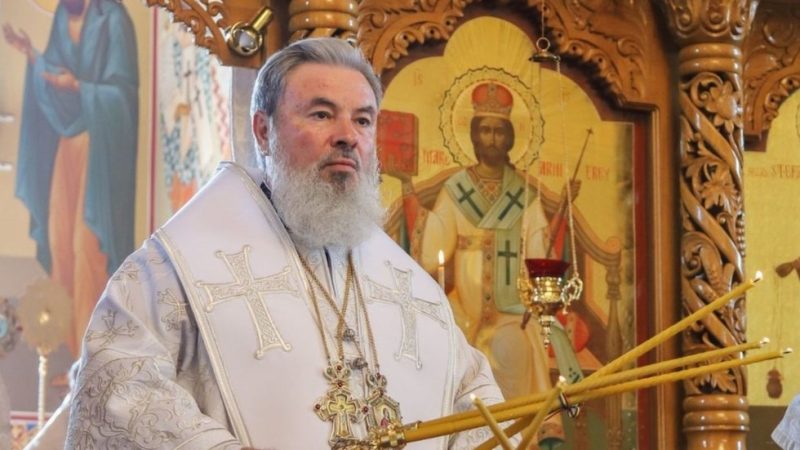
The recent Easter season in Moldova took an unexpected turn when authorities prevented Bishop Marchel of the Moldovan Orthodox Church from making a traditional pilgrimage to Jerusalem. This action has sparked outrage and accusations of religious suppression from opposition groups, painting a concerning picture of the country’s political climate. The incident unfolded in Chisinau, where police intervened to stop the Bishop’s planned visit, citing unspecified reasons. This move has been met with swift condemnation, with many viewing it as an escalation of religious tensions already simmering beneath the surface of Moldovan politics.
Moldova’s largest opposition party has been particularly vocal in its criticism, labeling the government’s actions as ‘spiritual terror’. They argue that this blatant interference in religious affairs is a dangerous precedent and a clear sign of the government’s increasing authoritarian tendencies. The party has called for a full investigation into the matter and demands accountability for those responsible for preventing Bishop Marchel’s pilgrimage.
The incident raises serious questions about religious freedom in Moldova and the government’s relationship with the Orthodox Church, a significant institution within the country. While official explanations remain scarce, the timing of the intervention – during the sacred Easter period – only adds fuel to the fire, suggesting a deliberate attempt to disrupt important religious observances. Observers are concerned that this event is not an isolated incident, but rather a symptom of a broader pattern of government overreach into religious life.
The international community is also watching closely, with concerns raised about the implications for religious freedom and democratic principles in Moldova. The lack of transparency surrounding the Bishop’s blocked journey only exacerbates these concerns. As the situation unfolds, it remains to be seen how the government will respond to the mounting pressure and whether further steps will be taken to address the accusations of religious suppression.










